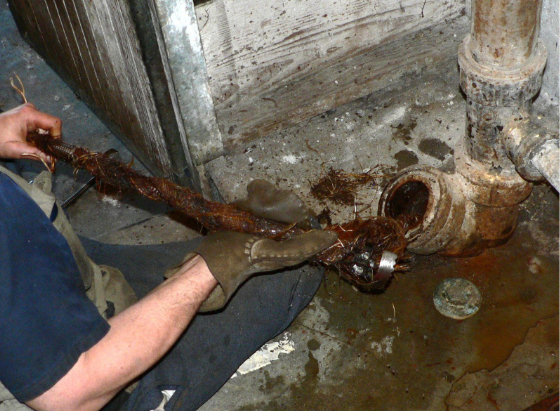Freshwater which contains a considerable amount of minerals such as magnesium and calcium is referred to as hard water. While hard water may not be harmful to your health, it can cause a host of problems in your appliances and plumbing fixtures.
As a result, you’ll be forced to part with a hefty amount to replace worn out appliances and plumbing fixtures to repair the problem.
What Causes Hardness in Water?
Rainwater is pure, which means it doesn’t contain any impurities. However, as it drains into underground reservoirs such as aquifers, minerals such as magnesium and calcium dissolve in the water, thus changing the water into hard water.
However, the number of minerals in the water will determine the water hardness which is measured in milligrams per liter.
Does It affect plumbing?
Yes, it does. According to Fast Plumbers, since it contains minerals, hard water reacts with a number of cleaning products to form soap buildup which eventually wears down appliances faster than hard water.
This soap buildup is referred to as scum which means you have to use more soap than you would with soft water. This buildup can form on clothing, dishes and pipes. This is what you can expect if you use hard water in your house.
Scale buildup in water pipes, thus reducingthe flowrate.
White spots on dishes and glasses.
Increased wear and tear on clothing during laundry.
Scale deposits on water heaters which reduces their lifespan.
Its Effects on Plumbing
Sinks, showers and tubs are only the first areas where we can see the deposits caused by hardwater. However, by the time you see this, the damage may be well advanced inside the pipes and fixtures. As a result, you may experience a noticeable reduction in water flowrate.
These deposits can also cause increased stress on the pipes, hence leading to faster wear. For this reason, you may be forced to hire a plumber to repair the pipes over a shorter period compared to one who uses soft water.
How Do You Test for Hard Water?
The most common indicator for hard water is the presence of white scale deposits on plumbing items. However, if these deposits aren’t noticeable yet, you can use a cheap DIY method to test for hard water.
One of the methods includes mixing water and dish soap and shake it in a container. If you don’t see a lot of suds, then you may have hard water. Another method involves using a test strip which you can find at hardware stores. Hold the strip under running water and then compare it against a color gauge.
Alternatively, you can contact a water testing company for precise results. However, make sure you don’t give the job to a softening company, otherwise, they may end up giving you false results just so they can sell you water softeners.
How to Resolve Hard Water Problems
You can find various water-conditioning products to treat mild hard water. Nevertheless, using a water softener is the most common method although you can install a water softener which provides an all-round solution if results show above 3 GPG.
Hard water can be a great nuisance to property owners due to mineral deposits and buildup which leads to clogged pipes and worn out appliances. However, with the information shared in this article, you can tackle this problem as soon as you notice it or better yet prevent it.









